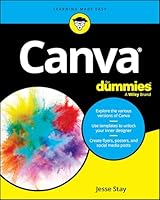
Game Physics Cookbook
- Length: 480 pages
- Edition: 1
- Language: English
- Publisher: Packt Publishing
- Publication Date: 2017-03-24
- ISBN-10: B01MDLX5PH
- Sales Rank: #1260668 (See Top 100 Books)
Key Features
- Get a comprehensive coverage of techniques to create high performance collision detection in games
- Learn the core mathematics concepts and physics involved in depicting collision detection for your games
- Get a hands-on experience of building a rigid body physics engine
Book Description
Physics is really important for game programmers who want to add realism and functionality to their games. Collision detection in particular is a problem that affects all game developers, regardless of the platform, engine, or toolkit they use.
This book will teach you the concepts and formulas behind collision detection. You will also be taught how to build a simple physics engine, where Rigid Body physics is the main focus, and learn about intersection algorithms for primitive shapes.
You’ll begin by building a strong foundation in mathematics that will be used throughout the book. We’ll guide you through implementing 2D and 3D primitives and show you how to perform effective collision tests for them. We then pivot to one of the harder areas of game development—collision detection and resolution.
Further on, you will learn what a Physics engine is, how to set up a game window, and how to implement rendering. We’ll explore advanced physics topics such as constraint solving. You’ll also find out how to implement a rudimentary physics engine, which you can use to build an Angry Birds type of game or a more advanced game.
By the end of the book, you will have implemented all primitive and some advanced collision tests, and you will be able to read on geometry and linear Algebra formulas to take forward to your own games!
What you will learn
- Implement fundamental maths so you can develop solid game physics
- Use matrices to encode linear transformations
- Know how to check geometric primitives for collisions
- Build a Physics engine that can create realistic rigid body behavior
- Understand advanced techniques, including the Separating Axis Theorem
- Create physically accurate collision reactions
- Explore spatial partitioning as an acceleration structure for collisions
- Resolve rigid body collisions between primitive shapes
About the Author
Gabor Szauer graduated from Full Sail University with a bachelor’s degree in game development. He has been making video games professionally for over 6 years. He has worked on games for the Nintendo 3DS, Xbox 360, browser-based games, and mobile games.
In his free time Gabor makes video games, researches video game-related technologies, and likes to design and construct furniture. Gabor currently resides in San Francisco, working in the mobile game industry.
Table of Contents
Chapter 1. Vectors
Chapter 2. Matrices
Chapter 3. Matrix Transformations
Chapter 4. 2D Primitive Shapes
Chapter 5. 2D Collisions
Chapter 6. 2D Optimizations
Chapter 7. 3D Primitive Shapes
Chapter 8. 3D Point Tests
Chapter 9. 3D Shape Intersections
Chapter 10. 3D Line Intersections
Chapter 11. Triangles and Meshes
Chapter 12. Models and Scenes
Chapter 13. Camera and Frustum
Chapter 14. Constraint Solving







